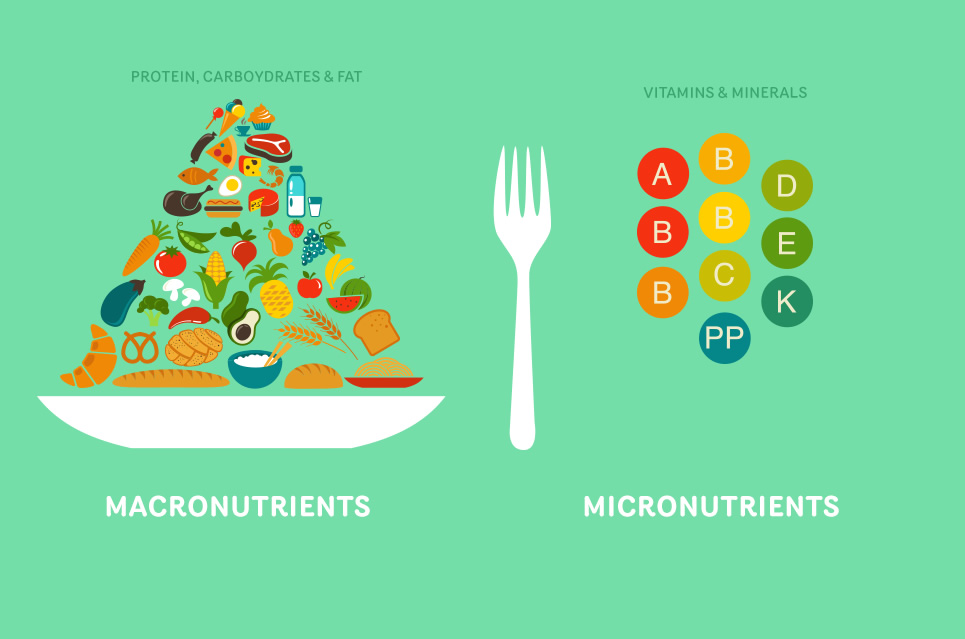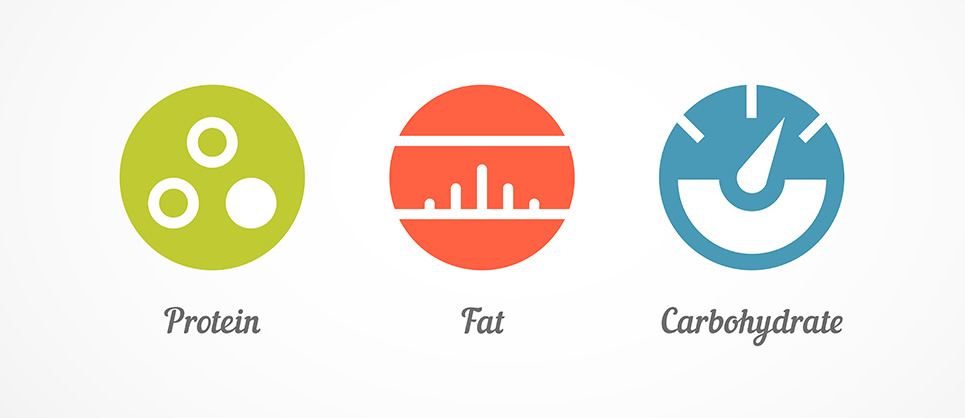

Macros and micros in nutrition - what are they?
To keep our body working at its best, we need a range of different nutrients, both macro and micronutrients. Macronutrient ratios have become quite controversial, relating to the dietary proportions of protein, fat and carbohydrate. Low-carb, low-fat, high protein… with so many mixed messages out there it can be hard to know what is best for you and your individual needs, and does the ratio of protein / fat / carbohydrates even really matter?
Macronutrients vs micronutrients
Macronutrients provide our body with energy and are the nutrients we consume in relatively larger volumes compared to micronutrients – protein, fat and carbohydrate (alcohol also provides energy). Micronutrients are, as the name suggests, found in smaller amounts in foods, think milligrams versus grams, and include vitamins, minerals and other phytonutrients. Your individual needs for macro and micronutrients will vary based on a range of different factors.

Protein
Protein is an important macronutrient that many of us don’t consume enough of. Protein has a high satiety rating and is important for muscle recovery and growth. Protein is a key nutrient to space over the day if you are trying to lose weight or training for improved muscle function and tone.
Fat
Fat contains a lot more kilojoules than carbohydrate or protein per gram, and this is one of the reasons why nutrition guidelines often suggest reduced fat intake for weight loss. It can certainly be easy to overeat kilojoules from fat, however we should also remember that fat is quite filling. Including some healthy fats helps to ensure adequate intake of fat-soluble vitamins and helps absorption of many nutrients from foods. No need to go fat-free!
Carbohydrates
Carbohydrates seem to have received a bad rap of late and almost every fad diet out there promotes ‘low-carb’. The reality is that many foods rich in carbohydrate are also rich in nutrition and can provide sustained energy levels. On the other hand, many of the carbohydrate sources we eat are highly concentrated, low in nutrients, and a lot of people eat more than they need. Carbohydrates consumed in excess generally doesn’t turn into fat, but will be burnt instead of fat, meaning your fat stores don’t budge. Before you cut the carbs completely, remember they can be a great energy source for active people and are nutrient-rich if you choose the wholegrain, dairy or fruit/vegetable-based varieties. If weight management is your goal, you may find that being selective with carbohydrates can be a useful strategy.
The best ratio of macronutrients will differ for everyone depending on your goals, training, health status, genetics and personal preferences. Remember too that we eat our nutrients via whole foods rather than getting too caught up in grams, percentages and ratios.